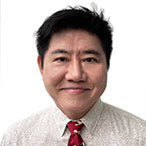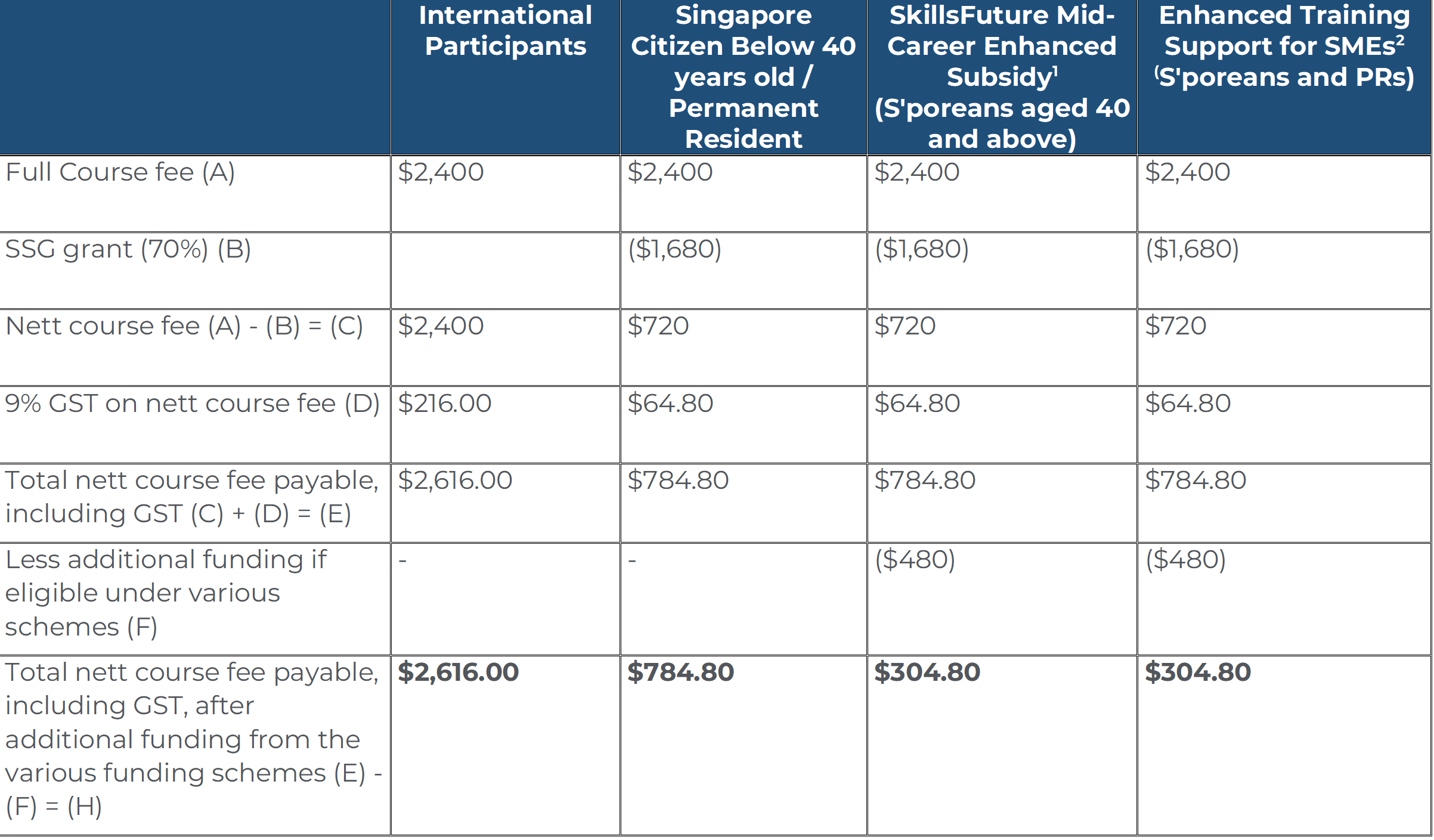Level: Advanced
Dates: 17 - 20 September 2024
Duration: 4 days
Venue: Singapore University of Social Sciences
This course focuses on the application of counselling skills and lessons will be conducted in the training laboratory and classroom. Participants will have the opportunity to practice their micro-counselling skills through role-plays under live supervision. Participants are also required to reflect on their experiences to demonstrate self-awareness and develop qualities of an effective counsellor through therapeutic presence. Participants will learn how their culture, personal values and beliefs can impact the counselling process.
This programme is for professionals, both counsellors and social workers, as well as individuals, embarking on a career switch into the social service sectors seeking to learn the basics of counselling in Singapore’s current context.
- Introduction and overview of the Helping Process
- A problem-solving approach to helping
- Ethical Issues in Helping
- Self-Awareness through Reflection
- Qualities of an Effective Counsellor: Developing Therapeutic Presence
- Micro-counselling Skills: Attending and Listening Skills
- Micro-counselling Skills: Empathy
- Micro-counselling skills: Paraphrasing and Summarizing
- Micro-counselling Skills: Use of Questions
- Micro-counselling Skills: Putting it all together
Learning Outcomes
- Examine the theoretical framework and importance of micro-counselling skills in the counselling session.
- Discuss factors that contribute to establishing a positive therapeutic relationship and cultural sensitivity of clients.
- Analyse the different micro-counselling skills (e.g. listening, leading, reflecting, summarising, confronting, interpreting and informing skills) that are appropriate at different stages of counselling (e.g. in the exploration, insight and action stages), including the use of self in the counselling process.
- Apply communication and counselling skills that facilitate the counselling process.
- Appraise the impact of poor communication and use of micro-counselling skills on clients.
- Demonstrate the competency of using micro-counselling skills, and the use of self in the counselling process.
- Examine and evaluate the impact of personal values and beliefs on the counselling process, including ethical issues in counselling.
A. Knowledge and Understanding (Theory Component)
By the end of this course, you should be able to:
- Examine the theoretical framework and importance of micro-counselling skills in the counselling session.
- Discuss factors that contribute to establishing a positive therapeutic relationship and cultural sensitivity of clients.
B. Key Skills (Practical Component)
By the end of this course, you should be able to:
- Apply communication and counselling skills that facilitate the counselling process.
- Demonstrate the competency of using micro-counselling skills, and the use of self in the counselling process.
- Examine and evaluate the impact of personal values and beliefs on the counselling process, including ethical issues in counselling.
- Analyse the different micro-counselling skills (e.g. listening, leading, reflecting, summarising, confronting, interpreting and informing skills) that are appropriate at different stages of counselling (e.g. in the exploration, insight and action stages), including the use of self in the counselling process.
| Time | Agenda |
|---|
| Day 1 |
| 09:00 - 10:30 | Getting to Know Each Other
An Overview of the Helping Process: |
| 10:30 - 10:45 | Break |
| 10:45 - 12:00 | Introduction to Helping |
| 12:00 - 13:00 | Lunch |
| 13:00 - 15:00 | Ethical Issues in Helping |
| 15:00 - 15:15 | Break |
| 15:15 - 17:30 | Self-Awareness through reflection |
| Day 2 |
| 09: 00 - 09:30 | Cultural Awareness, Change Talk in Conversations |
| 09:30 - 10:30 | Develop qualities of an effective counsellor through therapeutic presence |
| 10:30 - 10:45 | Break |
| 10:45 - 12:00 | Case study and activity: Qualities of an effective counsellor |
| 12:00 - 13:00 | Lunch |
| 13:00 - 15:30 | Helping Skills: Exploration Stage;
Helping Skills: Insight Stage;
Helping Skills: Action Stage and Integration |
| 15:30 - 15:45 | Break |
| 15:45 - 16:30 | Activity |
| 16:30 - 17:30 | Assessment, Feedback, & Review |
| Day 3 |
| 09:00 - 10:30 | Micro-counselling Skills: Listening and Leading Skills |
| 10:30 - 10:45 | Break |
| 10:45 - 12:00 | Skills Practice: Listening and Leading Skills |
| 12:00 - 13:00 | Lunch |
| 13:00 - 15: 30 | Micro-counselling Skills: Reflecting and Summarising skills |
| 15:30 - 15:45 | Break |
| 15:45 - 16:30 | Skills Practice: Reflecting and Summarising Skills |
| 16:30 - 17:30 | Assessment, Feedback, & Review |
| Day 4 |
| 09:00 - 10:30 | Micro-counselling skills: Confronting, Interpreting and Informing Skills |
| 10:30 - 10:45 | Break |
| 10:45 - 12:00 | Skills Practice: Confronting, Interpreting and Informing Skills |
| 12:00 - 13:00 | Lunch |
| 13:00 - 15:30 | Micro-counselling Skills: Pulling it Altogether |
| 15:30 - 15:45 | Break |
| 15:45 - 16:30 | Skills Practice: Pulling it Altogether |
| 16:30 - 17:30 | Assessment, Feedback, & Review |
- Skills Demonstration
Participants will do skills demonstration (of the relevant topics) during the small groups practices, role-plays, at the end of Days 2 and 3. [Total 3 hours] - Practical (Live) Examination
Participants will do an extended role-play with a peer as 'client' on 'Putting it all together'. They will received a Pass / Incomplete (Fail) on Day 4. [1 hour]
- Undergraduate degree in any field from a recognised institution
- Need to be working with an SSA at the point of application
 Mr Alan Yeo
Mr Alan Yeo
Alan Yeo, Registered Counsellor, Registered Clinical Supervisor, and Master Member (Singapore Association for Counselling, SAC) has been running his own Balanced Consulting since 2003, counselling, lecture, and conducting workshops on counselling and mental wellness themes, drawing ideas from Solution-Focused Brief Therapy & Mindfulness principles. He was Nanyang Technological University’s (NTU) Staff Counsellor (2010-14). From 2014 - 2019, he was the Counselling Specialist for Temasek Polytechnic (TP), where he counsel staff and supervises their team of counsellors. Since Apr 2018, he is a Senior Counsellor, Singapore University of Social Sciences (SUSS). His previous appointments are: Staff Psychologist at TP, Manager (Development) at Shatec Institutes, and Staff Officer at Ministry of Defence.
Alan holds a BSc (Hons) in Psychology from North East London Polytechnic, UK (1983), an MA (Experimental Psychology) from the University of Arkansas, USA (1986), and an MEd from NTU (1999). He also holds a Specialist Diploma in Counselling and Guidance, TP (2000), a Post-Graduate Diploma in Solution-Focused Brief Therapy from The Brief Family Therapy Centre, USA, jointly with Fei Yue Family Service Centre, SG (2001), and a Certificate in Eriksonian Psychotherapy & Hypnotherapy from The Milton H. Erikson Foundation, Inc., USA (2004). He is a certified trainer of the .b Mindfulness in School Project (2015).
Please submit the following documents to cet@suss.edu.sg:
- Coloured copy (back and front) of NRIC for Singaporeans and PRs, or "Employment"/"S" Pass for foreign applicant
- Application form

1 Mid-Career Enhanced Subsidy: Singaporeans aged 40 and above may enjoy subsidies up to 90% of the course fees.
2 Enhanced Training Support for SMEs: SME-sponsored employees (Singaporean Citizens and PRs) aged 21 and above may enjoy subsidies up to 90% of the course fees.
- Participants are required to achieve at least 75% attendance and pass any prescribed examinations/assessments or submit any course/project work (if any) under the course requirement.
- Participants are required to complete all surveys and feedbacks related to the course
- The course fees are reviewed annually and may be revised. The University reserves the right to adjust the course fees without prior notice.
- Singapore University of Social Sciences reserves the right to amend and/or revise the above schedule without prior notice
For clarification, please contact the SUSS Academy via the following:
Telephone: +65 6248 0263
Email:
CET@suss.edu.sg